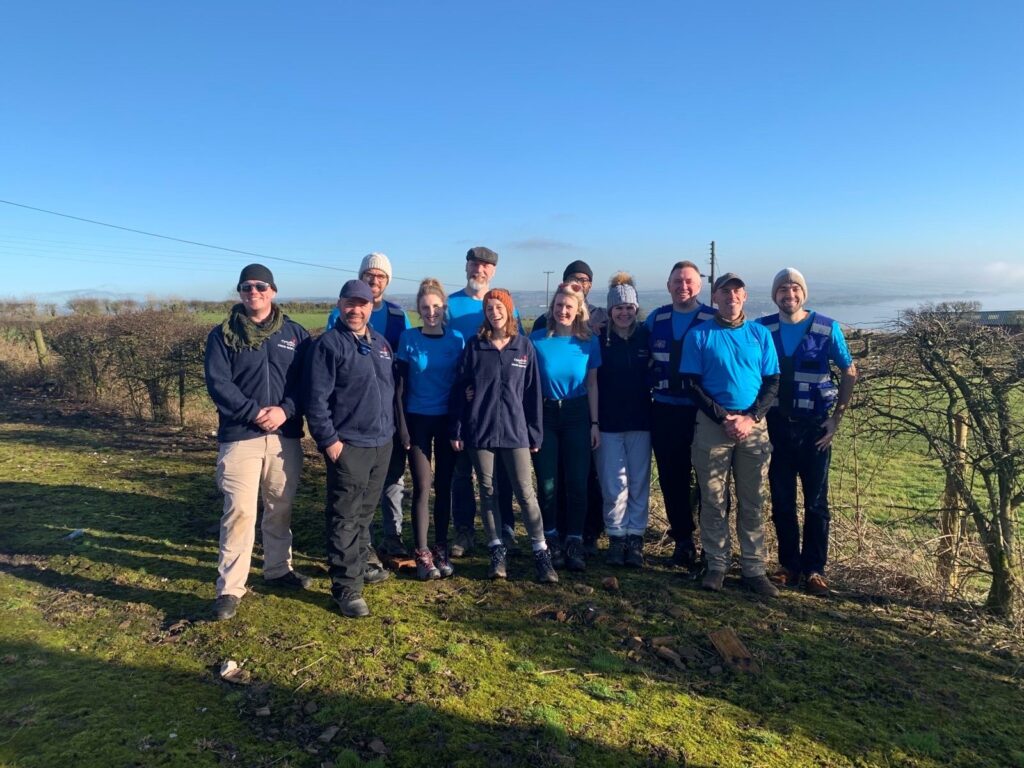British nutrition firm fuels disaster response teams in Ukraine

Disaster response teams in Ukraine are to be given emergency Special Forces rations to sustain them while rescuing war victims.
Made up of charities and NGOs, the teams working in the war-torn country, and its neighbouring countries, will receive half a million specially designed packs for them and the people they are rescuing to ensure they have a secure and safe source of nutrition while carrying out lifesaving work.
The rations, which have been developed by sustainable performance nutrition experts Resilient Nutrition, are the based on those used by Special Forces and the Royal Marines, as well as record-breaking adventurers during expeditions to Mount Everest and K2.
They contain concentrated energy and nutrition, including clinically proven ingredients to help the teams remain focused and alert as well as properly nourished throughout their mission, as well as providing high-calorie meal replacements for those rescued.
Ali Macdonald, former soldier and CEO at Resilient Nutrition, said that their previous experience working with first responders and crisis response teams operating in disaster zones made them perfectly placed to bring together the right supplies for those on the ground in Ukraine and the surrounding area.
“We are experts in feeding people in areas without secure supplies of safe food and drinking water so we knew exactly what to include in each pack when we were asked to help with this crisis.
“Having previously worked in surveillance and reconnaissance, being self-sufficient in some pretty inhospitable environments for weeks on end, helped us understand not just the nutritional needs but the constraints and challenges faced by the teams on the ground.
“Being fast and agile is a key part of our ethos, we have a modular system and we can turn things around quickly for a wide range of situations. We are also passionate about supporting first responders and the people that are putting their lives on the line to help others with a kit that will keep them going at a very gruelling time.”
The disaster response teams enlisted Resilient Nutrition, which has been developing performance and nutrition solutions for the Armed Forces and endurance athletes since 2019, to design the packs.
“We were contacted about supporting the units in Ukraine via our military contacts, as they knew our agility and experience in quickly providing nutritional solutions for people who need energy and to remain alert when under pressure in warzones and in the aftermath of disasters.”
The packs that are being assembled this week include Resilient Nutrition’s Long Range Fuel meal replacement pouches and their new healthy alternative to coffee, Switch On.
Dr Greg Potter, chief science officer at Resilient Nutrition, said the rations will sustain the teams and those they rescue.
“We specialise in making functional products and these packs all contain energy and nutrient dense products that are full of natural ingredients known to boost cognitive function, particularly when people are jetlagged, or have lost sleep.
“The packaging is lightweight and robust, and can be transported in carry-on luggage so it’s ideal for individuals using commercial airlines to get into the region. Being able to take several days’ worth of food with them in just a few kilos of baggage allowance means they can carry more of the specialist equipment they need.
“The teams of British volunteers and rescuers in the region need to be at their physical and mental best and we know that our ration packs will help them from a nutritional point of view, at least.”
The kits also contain protein-packed, dehydrated dishes including porridge, curry and pasta from specialist expedition food company Firepot.
Dave Hearn, operations officer at Operation Orphan, one of the charities utilising these rations, said that they will feed the response team as well as provide essential nutrition for the children they are there to support:
“Our teams have to be as self sufficient as possible as well as keep weight to an absolute minimum. We also need to ensure we can sustain the people in our care until we can get them to a safe location.
“There are a huge amount of unknowns, particularly in the early stages of a mission like this, and we need a flexible solution. We are constantly adapting to the situation on the ground and the packs from Resilient Nutrition are really helping with this.”




